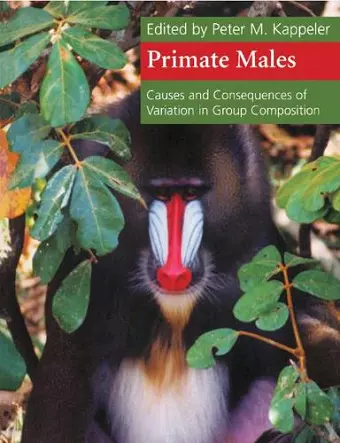Primate Males
Causes and Consequences of Variation in Group Composition
Format:Paperback
Publisher:Cambridge University Press
Currently unavailable, and unfortunately no date known when it will be back

Explores male number variation between and within primate species and its effects on male-female relationships.
Why do some primate groups have only one adult male, monopolizing several females, whereas in others, several males live side by side with several females? What are the consequences for male-female relationships and the evolution of mating systems? This book uses both fieldwork and theory to unravel this complex issue.The size and composition of primate groups varies tremendously across species, within species, and within groups over time. The most variable quantity is the number of adult males. In some groups, single males can monopolize access to several females, whereas reproduction is shared among several males in other groups. This variation lies at the heart of understanding adaptive variation among social systems. Whether groups contain single or multiple males has important consequences for reproductive strategies of both sexes, and also shapes these animals' morphology and behaviour. Written by leading authorities, this book provides an extensive overview of variation in group composition across all major primate taxa, using up-to-date reviews, case studies, evolutionary theory and theoretical models, setting primates into context with birds and other mammals. It will become a firm favorite with all those interested in the behavioural ecology of primates.
"This technical compendium will generate much debate in seminars and journals during the coming decade. Recommended for anthropological and zoological collections." Choice
ISBN: 9780521658461
Dimensions: 247mm x 190mm x 21mm
Weight: 675g
328 pages